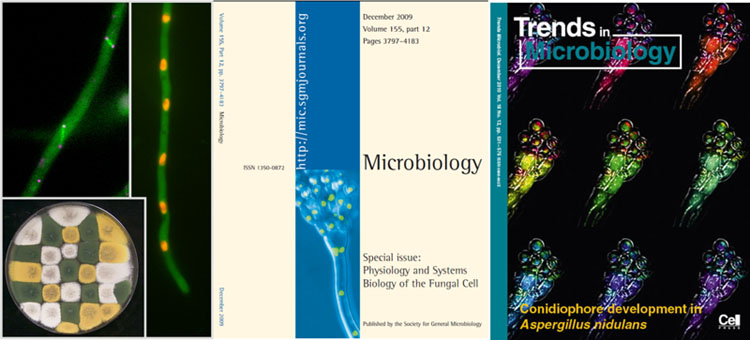Great genetic variability allows fungi the ability to thrive in extreme environments. The efficient transcriptional regulation and the perfect communication between the nucleus and the cytoplasm, where the transcriptional factors are synthesized and many of the signalling systems concur, ensure the correct expression of those genes whose products are needed for the fungus to develop in these environmental conditions. We study the molecular machinery that participates in cation homeostasis, mono and divalent, and that guarantees the nucleo-cytoplasmic transport of transcriptional factors of high hierarchy that allow to face the different abiotic stresses. Likewise, we intend to establish the way in which these processes participate in the cellular differentiation that occurs during the asexual reproduction cycle in Aspergillus and in the pathogenicity of this fungus in mammals.


